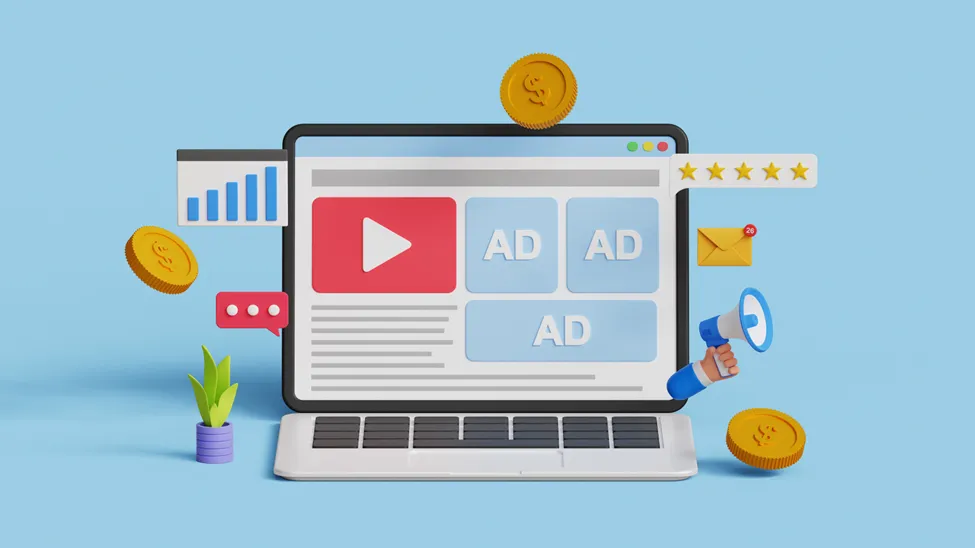How to Boost Your Business with Smart Digital Marketing Strategies

The term “smart” gets thrown around often in discussions about technology. Did you know that it isn’t technically a word (in this context) but an acronym for “self-monitoring analysis and reporting technology?” If you already knew that, great! If not, the more you know.
Smart technology (despite sounding along the lines of “ATM machine”) has cemented itself in the modern business environment. Everything from managing workflows to coordinating with partners utilizes smart devices and principles to some extent—and it isn’t that hard to see why. As many business experts and leaders have echoed, data is the new gold.
A business that isn’t harnessing data the right way risks falling behind its competitors, and there’s no better way to use it than in digital marketing. Long story short, if you have a clear picture of your target audience and your business’s capabilities, you’re on the right path to business success. Here are a few smart digital marketing strategies to get started.
Search Engine Optimization (SEO)
You probably heard of SEO at least once, regardless of how much you know about it. With search engines as the preferred means of looking up information, it only makes sense for brands to position themselves as the first their audience sees on the Internet. Optimizing content for online searches is a great way to achieve that.
As Google puts it, SEO is about two things: helping search engines understand what your content is about and helping the billions of Internet users make more informed decisions. For all their technological leaps and bounds in the past several years, search engines still struggle with understanding context. Moreover, people still need help deciding on stuff.
Doing SEO is more straightforward than you might think. Google, being the largest search engine in nearly every aspect, has set ground rules to adhere to. Getting into the specifics is a topic for another time, but here’s a quick rundown of several best practices.
- Create content for people, not search engines
- Ensure search engines can crawl embedded links for indexing
- Share your expertise in online communities (e.g., Reddit, Quora)
- Integrate keywords in key parts of your content, such as the title
The effectiveness of an SEO strategy depends on multiple factors, some of which, like the keyword’s search volume, are beyond your control. That said, when you make the most out of such situations, you can find your brand among the top-ranked search results, if not the top rank. Consistent SEO can help stay that way for a long time.
And the best part is that SEO can be done without spending a penny using free tools. But if you want faster, more consistent results, working with a Best SEO Agency can be a smart investment. They handle the heavy lifting—keyword research, technical fixes, and link building—so your business climbs the rankings while you focus on growth. If you prefer getting better results or don’t have any idea how to go about it, there’s the option of paying for professional services such as Smartly Done and others.
This strategy isn’t without its downsides. White-hat SEO—that is, doing SEO according to the rulebook—takes a long time to bear fruit. Even a well-planned SEO campaign can take several months or years for its results to be noticeable. Black-hat SEO practices can speed things up, but as you probably have guessed, search engines don’t appreciate them.
Because of this, smart digital marketing doesn’t hinge on a single strategy.
Pay-Per-Click (PPC) Marketing
Effective advertising reaches as many leads or potential customers as possible and lets them know that your brand is an option for their needs. This outlook has barely changed from the past centuries, from paying street criers to setting up signboards.
The introduction of the Internet adds a new advertising medium along with the digital strategy that best harnesses it: PPC marketing. It goes by many names, but to keep it simple, this article will continue to refer to PPC marketing as such.

This strategy involves PPC, a business model created in the 1990s but whose first adopter is still being contested. Say a brand wants to run ads on specific search engine results, so it signs up for a PPC service to do that. Every time someone clicks on its ad, whether with intention or by accident, the brand pays the service a fixed cost called cost per click (CPC).
As CPC is based on how much you’re willing to bid for a keyword (yes, you’ll be engaged in a bidding war for the right to advertise), the cost for most keywords is in the single digits. As a result, when a click eventually results in a sale, the brand more than recoups the cost. A USD$100 sale for a click worth USD$1 is an impressive return on investment (ROI).
However, note that ROI is a wildly variable metric in PPC marketing. Some keywords are worth more than others, and the price of the products and services you’re selling is also taken into consideration. That doesn’t mean you can’t maximize your ROI by:
- Limiting your campaign to the most relevant keywords
- Optimizing your targeted landing pages for conversion
- Studying the nature of the campaign’s target audience
- Conducting A/B testing as frequently as possible
PPC marketing has several advantages over most digital marketing strategies. First, paid ads run at strategic spots in a search engine results page (SERP), namely the top and right side of the results. They take advantage of users’ tendency to click on the first result they stumble upon, which is usually the top result.
Another advantage is that measuring a campaign’s effectiveness is more convenient in PPC marketing than in, say, SEO. Lead generation and conversion rates provide a more detailed insight into how much traction your online marketing campaign is getting. By comparison, in SEO, clicks to a link alone won’t tell if the visitor has become a customer.
However, PPC marketing is the riskiest strategy because money is more directly involved. With so many moving parts, there’s a lot that can go wrong. You can end up wasting your capital on unsuitable keywords or target audiences, to name a few. It’s one of a handful of strategies where a professional marketer or digital marketing team must be in charge. If you’re ready to operationalize these tactics with an expert partner, consider working with a full-service digital marketing agency that unifies SEO, PPC, content, and analytics into one roadmap. Agencies like Motion’s digital marketing solutions offer strategy, execution, and measurement under one roof—helping teams move faster, reduce waste, and prove ROI with clear KPIs. Whether you need an audit, campaign launch, or ongoing optimization, an integrated team can scale what works and align marketing activities with SMART goals.
Content Marketing
Make no mistake: content is still king in 2024 (and possibly beyond), but that adage leaves out many equally vital details. Though, to be fair, when Bill Gates wrote and published his eponymous essay 30 years ago, it was more of an expectation than a data-driven outlook.
To start, “Content is king” wasn’t made in the context of the epidemic of misinformation, particularly fake news, plaguing the Internet today. Social media is saturated with all sorts of conspiracy theories and groundless claims, which has complicated marketing efforts.
More importantly, you have your customers—content kingmakers—feeling understandably apprehensive or aggravated. Not everyone will feel better after reading an extensive review of the false claims about a brand’s products or services. What’s the point of trying to allay consumers’ fears if the content doesn’t answer any of their questions?
As such, content marketing is geared toward building trust. In fact, trustworthiness is one of Google’s four fundamentals of content quality, popularly known as E-E-A-T (‘T’ meaning trustworthiness). It challenges everything people have known about optimizing content for search. It’s why, as mentioned earlier, content must be made for people.
It pays to ask yourself several questions every time you create content, whether a product page or blog post. Most can be answered with a yes or No. Below are several examples.
- Is the information in the content backed up by reliable sources?
- Can these sources be accessed from the content (i.e., links)?
- Is the content’s author an authority on the subject matter?
- Does the information in the content avoid stating the obvious?
- Does the content look like one a reader would share with a friend or relative?
- Does the content provide details that can’t be found in other content?
Content marketing isn’t designed to promote a brand in the same manner as ads. In fact, it’s better that way, as consumers are getting better at distinguishing blatant advertising. Creating content that hits every nail on the curious consumer’s head gives your brand the impression of being an expert in the niche, earning it respect and referrals.
That said, similar to SEO, there’s no way to expedite the generation of fruitful results from this strategy. Your kingmakers decide what kind of content is “king,” and their criteria can vary. Beyond being informative, quality content must be relevant to current trends to boost its chances of getting the attention it deserves.
Goal Setting
At this point, you’re probably gearing up to adopt these strategies, which is a great mindset to have. But at the end of the day, they’re just that—strategies or means to an end. You can plan your course of action for each method all day, but it needs a destination.
In other words, your marketing campaign must have a goal.
It may seem like stating the obvious, but too many digital marketing campaigns flop either because their goals are unrealistic or they lack one to begin with. There’s no need to quote something profound from a certain ancient Chinese strategist to know that this isn’t how to do business (let alone wage war).
This is where another side of the term “smart” comes into play: SMART digital marketing goals. SMART is also an acronym, but it stands for everything necessary to create viable marketing goals.
- Specific: Outline what needs to be accomplished in great detail
- Measurable: Identify suitable benchmarks for gauging marketing success
- Achievable: Know if the business objective is doable with the available resources
- Relevant: Establish a good reason for setting such a SMART goal
- Time-bound: Set a realistic deadline for accomplishing the SMART goal
SMART goal setting is a good way to avoid losing your way while nurturing your brand. It lets you know yourself and your competitors, which helps you not fear the result of a hundred digital marketing campaigns.
Conclusion
These digital marketing strategies rely on accurate data so that they don’t miss the mark and cost a brand thousands, hence being “smart.” Today’s businesses should be using at least one, not just because they know what consumers want but also because their rivals have the right mindset to adopt them for their digital marketing strategy.